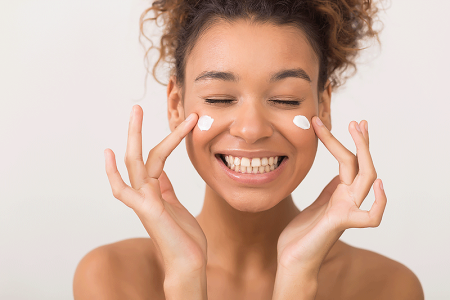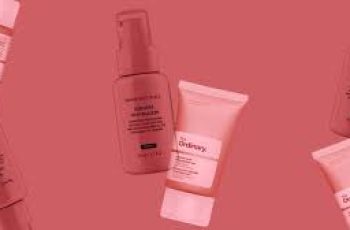
Can I use mandelic acid in the winter?
When it comes to skincare routines, it’s best to use one in the summer and another in the winter. As temperatures and weather change, as well as sun exposure, seasonal changes are the way to ensure your skin stays at its healthiest.
While it may seem daunting at first, once you have a clear understanding of which ingredients to avoid and which ones to use, it becomes a simple task with maximum results. But before we get too carried away, let’s take a look at how some ingredients can affect the skin year-round and whether we should stow them away when the temperatures start to rise. Mandelic acid will be the focus of today’s blog post, and by the end of it you’ll have a better understanding of its active ingredients and whether it’s beneficial to use mandelic acid in the winter.
In the next section, we’ll explain the benefits of this smart powerhouse. So if you’re already familiar with mandelic acid and the results it provides, you can skip to the next section.
What is mandelic acid?
Extracted from bitter almonds, it belongs to the alpha hydroxy acid (AHA) family.
Research is still ongoing to determine how effective the acid is for the skin.
It’s considered one of the gentlest acids and is often used by people with sensitive skin.
It is said to help the skin fight acne, uneven skin texture, hyperpigmentation, and signs of premature aging.
It helps speed up skin cell turnover and removes the layer of dead skin cells on the upper surface of the skin.
It boosts collagen production, ensuring that the skin appears plumper, firmer, and younger.
It regulates sebum production and reduces acne caused by skin inflammation.
It helps improve skin tone and lighten areas of hyperpigmentation, dark spots, and melasma.
It reduces the appearance of fine lines, wrinkles, and loss of elasticity.
Here are some examples of how mandelic acid works and what benefits you can expect from using it. If you want to learn more about how this ingredient works, read our blog post on how often to use mandelic acid.
When shouldn’t you use mandelic acid?
Mandelic acid is one of the gentlest acids, so you can usually combine it with other active ingredients without worrying about irritation or reactions to your skin. This also means you can use them every day.
If you want to use mandelic acid during a professional peel or treatment, you will need to stop using mandelic acid-infused products every day and instead wait until after your treatment.
Another thing you need to remember is to protect your skin from UV radiation and other oxidative damage caused by the sun, pollution, and other environmental factors. Therefore, it is important to wear an SPF sunscreen every day to adequately protect your skin from the sun and harsh climates.
Does mandelic acid cause sun sensitivity?
Yes, it can. Since mandelic acid is an exfoliant that removes the buildup of dead skin cells, mandelic acid can often lead to increased sensitivity to the sun. This sensitivity can cause a variety of issues such as stinging, burning, itching, and rashes on the surface of the skin.
To ensure that your skin is protected from further damage from free radicals and other environmental pollutants, apply SPF 30 every day. You can also use mandelic acid products at night to avoid exposure to UV rays and let the mandelic acid refresh your complexion while you catch up on your beauty sleep.
If your skin is prone to extreme sensitivity and dryness, I recommend that you seek the advice of your doctor or dermatologist before using any new products or formulas on your skin.
Is it OK to use mandelic acid every day?
Yes, you can, but only if your skin has built up a tolerance to the active ingredient. As I mentioned before, mandelic acid is one of the gentlest acid peels, but that doesn’t mean it’s good for everyone.
To start, I recommend using a low percentage formula once a day. Observing how your skin feels will also help you determine if this is the best ingredient for you. You can then apply it to your skin twice a day, and don’t forget to combine it with your daily sunscreen. If you want to use a stronger formula, you can also opt for a treatment such as: B. A facial or chemical peel performed by a professional. It usually contains a higher percentage of mandelic acid, and usually requires some rest time for the skin with a high amount of hyaluronic acid and limited sun exposure after the treatment.
Can mandelic acid be used in the summer?
Yes, you can, but as I said before, as with any acid peel, you will find that your skin becomes increasingly sensitive and can be further damaged if you don’t take the right precautions. This is why I stress the importance of using sunscreen every day, even on cloudy and overcast days. This protects the skin from UVA and UVB rays as well as other free radicals such as pollution, central heating, smoking, harsh climate and other environmental stressors on the skin.
What should not be mixed with mandelic acid?
It is recommended to avoid using any form of retinol with mandelic acid as it can over-irritate the skin. This can lead to stripping away sebum and water, which are necessary for a healthy and strong lipid barrier. If you are about to undergo a mandelic acid chemical peel, it is highly recommended that you do not use retinol products a week before the treatment as this can lead to poor results.
I hope that today I have answered some of your questions about mandelic acid and its use during the winter months. Don’t forget to follow us on Instagram for more skincare tips, exclusive discounts and product launches.


